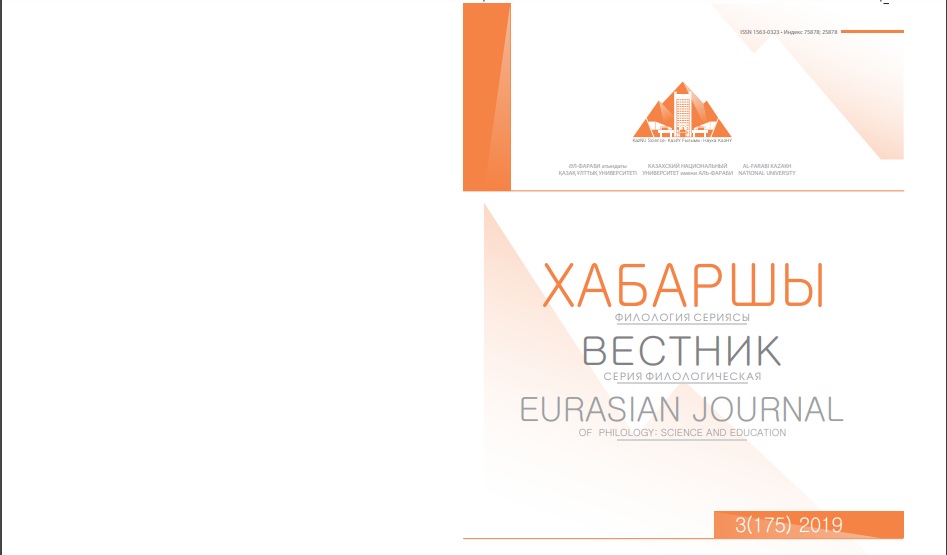The role of speech etiquette in intercultural communication
DOI:
https://doi.org/10.26577/EJPh-2019-4-ph14Abstract
The article is devoted to the problem of interaction of language and culture. When studying the problems of intercultural communication, issues related to the peculiarities of culture and speech
etiquette of these peoples are of great importance. Knowledge of the peculiarities of national etiquette
traditions contributes to better mutual understanding in international communication. Speech etiquette
becomes one of the most important components of language learning, as well as the most important factor of intercultural communication. As a result of the expansion of intercultural contacts, representatives
of different linguistic and cultural communities become participants of communication. The success
and effectiveness of interaction are predetermined not only by language proficiency, but also by knowledge of national and cultural specifics of speech and non-speech behavior, knowledge of socio-cultural
norms, dominant features of communication, national systems of politeness.
Many difficulties of intercultural communication arise in international communication and are
caused by inability of interlocutors to interact, i.e. to show the relation to each other according to norms
of this society and concrete expectations of the partner. National and cultural peculiarities of communicants ‘ behavior in this type of communication are connected with the fact that different cultures have
their own understanding of politeness and ethical norms. Etiquette is a category of communicative consciousness, is a reflection of the national mentality and regulates the communicative behavior of people.






